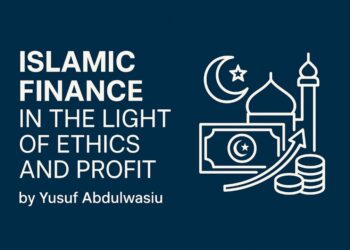Introduction
When a child arrives this ephemeral world, certain rights and privileges he is meant to enjoy become so effective irrespective of his age, sex, colour, religion, cultural; historical and geographical background.
It is pertinent to note that human rights apply to all age groups. A child has the same general human rights as an adult except those rights limited to the attainment of certain age e.g right to vote and be voted for in Nigeria’s election (18 years), contractual rights (21 years) etc.
Before delving further, it is essential to give a definition of the term ‘child’. Ordinarily, a child is a person who is yet to reach the age of adulthood. The Black’s Law Dictionary defines a child as a person who has not attained the age of majority. Also, the United Nations Convention on the Rights of a Child, 1989 describes a child as any human person below the age of 18 years unless under the law applicable to the child, majority is attained earlier.
LEGISLATION SAFEGUARDING RIGHTS OF A CHILD
Nigeria’s principal statute enacted by the National Assembly for the protection, promotion and safeguard of child rights is the Child’s Right Act, 2003 (hereinafter referred to as CRA 2003).
The Act incorporates the principles and provision of the United Nations Convention on the Rights of a Child, 1989 (UNCRC 1989) which is an international treaty that sets out the social, economic, civil and cultural rights of children throughout the globe. Only 26 States of the Federation have adopted the CRA 2003 as their law with 11 Northern States yet to do same.
As a member of the United Nations and signatory to the UNCRC, Nigeria has shown commitment and willingness to promote the rights of the country’s children. The Convention covers the likes of a child’s right to life, proper well-being, education, health, prevention of exploitation, physical and sexual abuse and a host of others.
Hence, it could be said that the CRA 2003 is a reflection of the 1989 UNCRC. The Convention has four (4) core principles which are non-discrimination, best interest of the child, right to life survival and development and the right to be heard.
Sailing down to Africa, the African Charter on the Rights and Welfare of a Child was adopted by the OAU (later African Union) in 1990. This Charter also plays a vital role in the birth of the Child’s Right Act, 2003.
The 1999 Constitution of Federal Republic of Nigeria (as altered), the grundnorm from which other laws derive their validity makes provision in Chapter IV for the Fundamental Rights of Nigerians. To guarantee its application, Section 3 of the CRA 2003 provides to the effect that the provision of Chapter IV in CFRN 1999 shall apply as if they are expressly stated in the Act. Additionally, the Labour Act, Criminal Code among other legislation make statutory provisions for child’s right protection.
CHILD’S RIGHT PROTECTION, EDUCATION & WELL-BEING
The UNCRC establishes child rights to be the minimum entitlements and freedoms that should be afforded to all persons below the age of eighteen.
United Nations Children’s Fund as an agency of UN considers child protection a response to issues of child abuse; trafficking, labour, marriage, betrothal, exploitation, violence, physical and sexual abuse etc. Certainly, a child who lack protection is vulnerable to infectious diseases, poor health, low chance of access to proper education, homelessness, displacement in the society and the most hazardous one, death. In avoidance of this, Section 14 (1) (2) CRA 2003 makes provisions for the right of every child to parental care, protection and maintenance.
Having been regarded as leaders of tomorrow, every child irrespective of age, sex, religion, ethnic, geographical location is entitled to sound, quality and affordable education. No child, especially girls must be deprived of receiving education anywhere in the country. Nigerians’ hope that children would live to take over from the older generation now seems to be far from being realistic.
Despite the fact that primary education is free, records show that about 10.5 million Nigerian children are out of school. The most affected area in terms of education deprivation is the Northern Nigeria. However, significant factors such as gender, poverty, socio-cultural practices discourage attendance of girls in formal education.
Moreover, the entitlement of every child to free, compulsory education is well stipulated in Section 15 CRA 2003. Child education should be highly prioritised. Every child should have access to affordable and quality education within a safe learning environment, sufficient learning materials and sound educational planning.
Additionally, every child is entitled to enjoy the best attainable state of physical, mental and spiritual health. The parents, guardians, government and other institutions are responsible for the healthcare and well-being of a child (Sections 2 & 13 CRA 2003).
CHALLENGES IN IMPLEMENTING CHILD’S RIGHT ACT & RECOMMENDATIONS
Since 2003, the implementation of the Child’s Right Act has been at the minimal level. Several issues hindering the aims of the Act includes: the inability of some states of the federation to re-enact the Act into law, weakness of agencies set up for its enforcement, corruption, high rate of poverty, illiteracy, lack of awareness on the provisions of the Act, failure to establish family courts leading to ineffective child justice administration in the country.
Responses can be made to ensure proper implementation of Child’s Right Act. They include: re-enactment of the Act into law in other Nigerian states, government’s provision of affordable education, poverty alleviation through several measures, enlightenment and exposure of citizens to their rights, establishment of family courts etc.
CONCLUSION
On a final note, for the betterment of Nigerian children, government are urged to establish necessary mechanisms to ensure their protection, safety, welfare and care. Child rights must be well protected and safeguarded from being trampled upon. No child should be exposed to danger. No matter what, every child must be bred with proper, sound and affordable education. Any individual found violating the rights of a child must be brought to face the wrath of the law.
OTHER PUBLICATIONS BY THE WRITER
A. O. TOHEEB & S. A. ASHIMI: LEGAL FRAMEWORK ON PERSONS LIVING WITH DISABILITIES IN NIGERIA
S. A. ASHIMI & A. A. AKINLABI: LEGAL ETIQUETTES: APPRAISING COURT DECORUM & COMPLIANCE
S. A. ASHIMI: NIGERIAN CHILD’S RIGHTS: PROTECTION, EDUCATION AND WELL BEING
ASHIMI SAOBAN ADEDAYO IS A SECOND YEAR LAW STUDENT OF UNIVERSITY OF ILORIN, KWARA STATE, NIGERIA. HE IS INTERESTED IN ADVOCACY, STUDENT LEGAL PRACTICE, HUMAN RIGHTS ACTIVISM, LEGAL WRITING, ESSAY WRITING, AMONG OTHERS






















